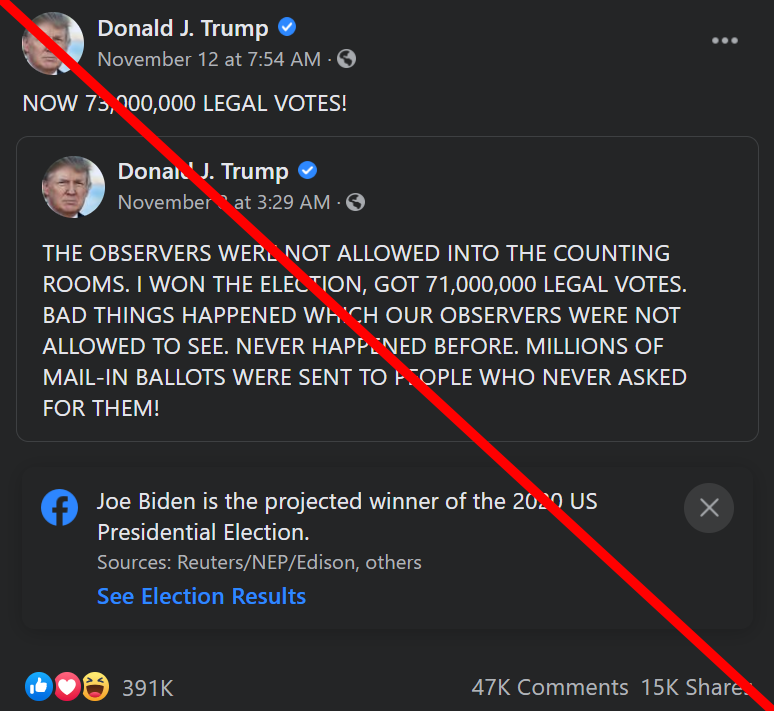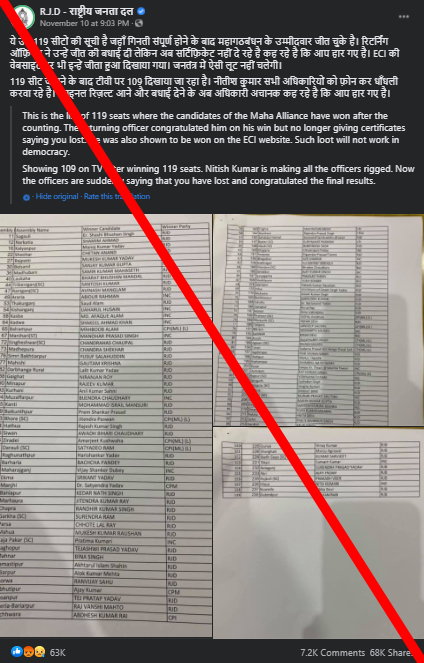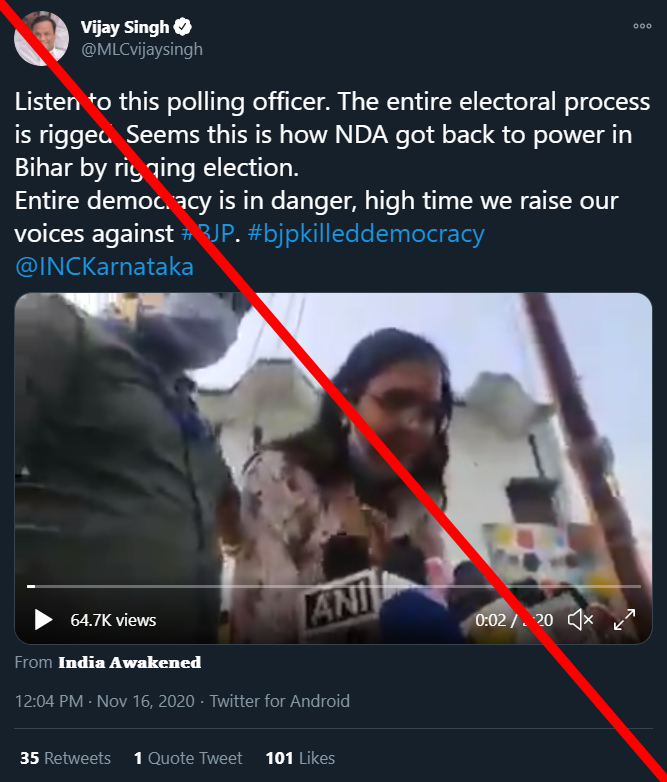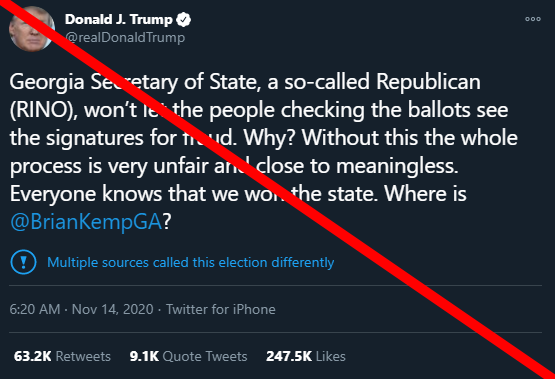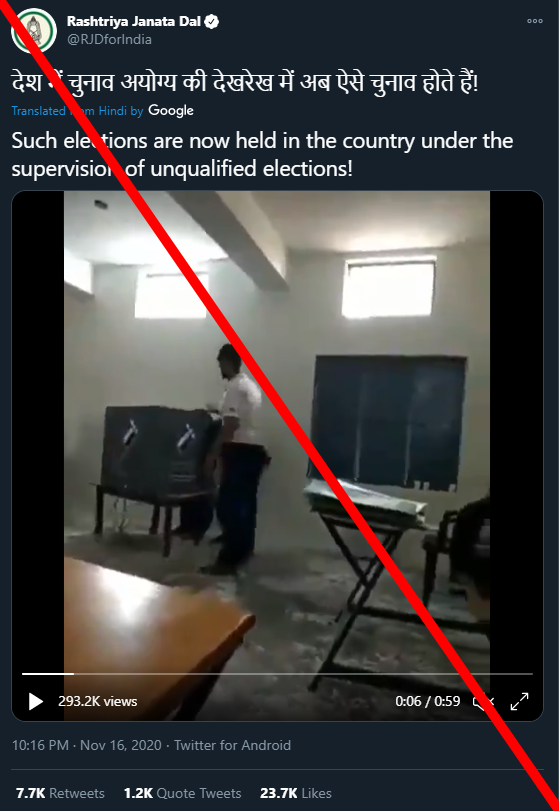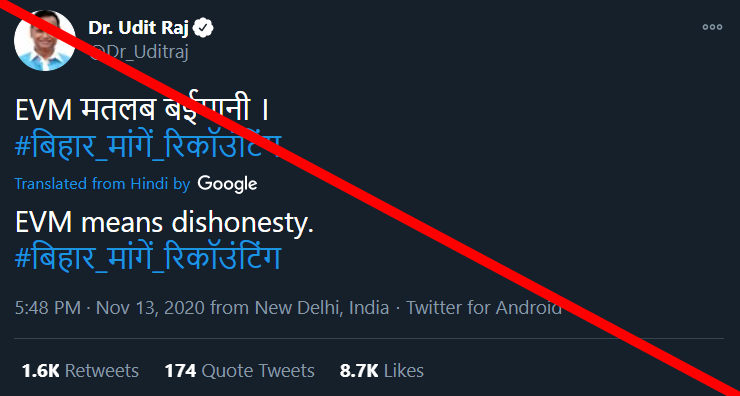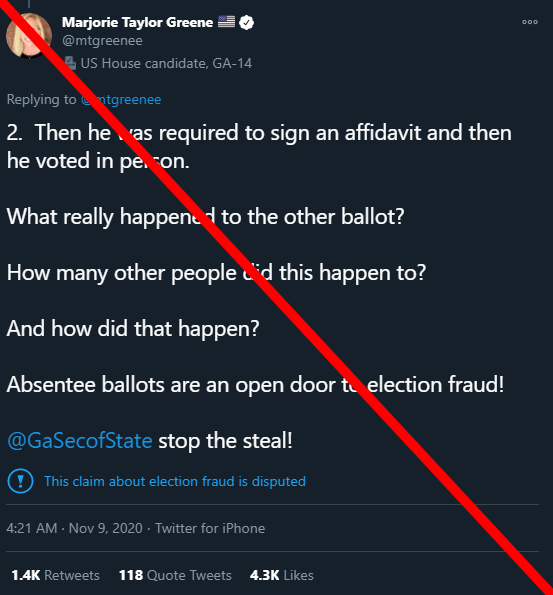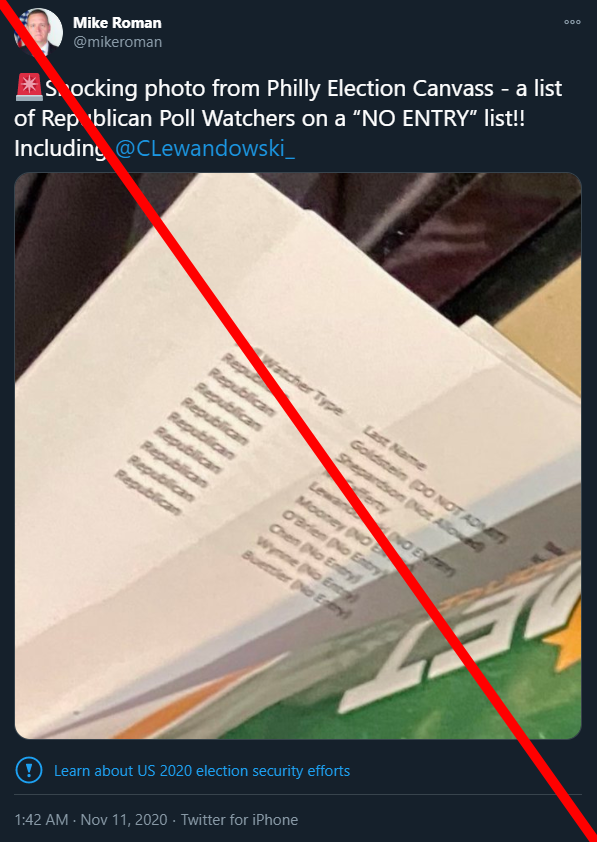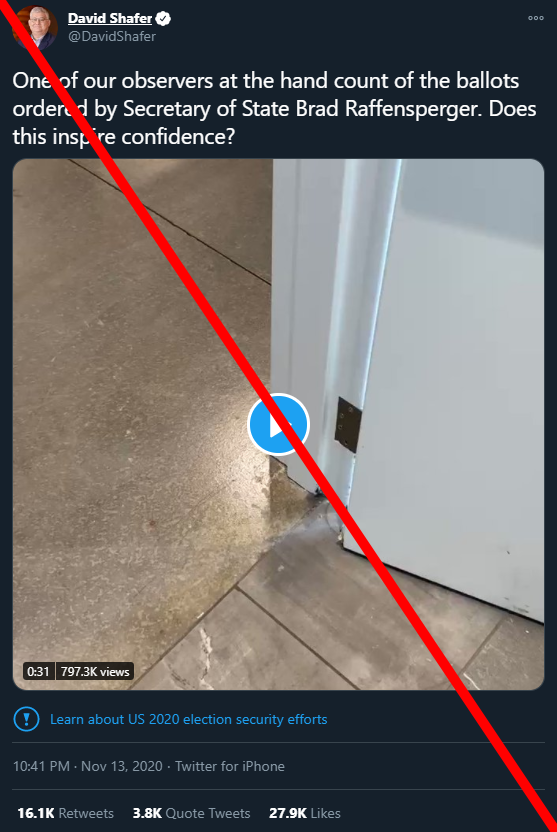Over the last two weeks, I’ve monitored @firstdraftnews election misinfo for both the US presidential election and the state election in Bihar, India. One thing that's striking: the discrepancies in how platforms like FB and Twitter treat similar fraud claims in the two places
In the US election, both Facebook and Twitter labelled misleading posts and false accusations about the election process, including Donald Trump’s debunked or unsubstantiated claims of widespread voter fraud. Facebook’s labels provide context from news sources
Compare this to the Bihar election, where Facebook does not provide labels or additional context for unproven allegations of voter fraud made by the RJD party, even though the claims have been disputed by the Election Commission
https://www.hindustantimes.com/bihar-election/bihar-assembly-election-2020-rjd-issues-list-of-119-seats-in-twist-to-bihar-vote-count-says-it-has-won-them/story-yTGwjdWe7k4vXRgDtmdHwO.html
https://www.hindustantimes.com/bihar-election/bihar-assembly-election-2020-rjd-issues-list-of-119-seats-in-twist-to-bihar-vote-count-says-it-has-won-them/story-yTGwjdWe7k4vXRgDtmdHwO.html
Twitter labelled Trump's tweets alleging fraud, but not similar claims from political figures in India. Congress leader Vijay Singh's claims of election rigging in Bihar — @LogicalIndians found the video he used was not filmed in Bihar — is one example
https://thelogicalindian.com/fact-check/one-sided-elections-24904
https://thelogicalindian.com/fact-check/one-sided-elections-24904
Another example: the RJD tweeted a misleading video allegedly showing fraud at a voting booth. The video was filmed in 2019. @AltNewsHindi has the fact check here, but Twitter hasn’t labeled the RJD tweet https://www.altnews.in/hindi/video-from-2019-lok-sabha-polls-viral-as-voter-fraud-in-recent-bihar-elections/
As in the US, political figures in India have also raised unsubstantiated claims on Twitter that voting machines were hacked. India’s election commission says these claims are unfounded. But the claims haven’t received labels
https://www.ndtv.com/india-news/evms-absolutely-robust-and-tamper-proof-election-commission-2323379?mc_cid=42f6545622&mc_eid=1bcb5db805
https://www.ndtv.com/india-news/evms-absolutely-robust-and-tamper-proof-election-commission-2323379?mc_cid=42f6545622&mc_eid=1bcb5db805
You might say Trump has a uniquely big audience and that explains the label differences. But fraud claims from GOP officials, political operatives and US congress candidates—with smaller Twitter audiences than the Indian pol figures above—received labels from Twitter
This raises questions about why claims from political figures in India and the US are treated differently. What does this say about the importance of election integrity in different countries?
Is the non-moderation of election misinfo in India because of the lack of moderators speaking Hindi or another regional language? Since India is one of the world’s biggest online markets, what more could platforms be doing? And how does this bode for smaller countries?
It’s a massive challenge, but if platforms aren’t consistent and don’t explain the differential treatment, to quote @rasmus_kleis, they “risk ending up joining the long list of Western companies who treat people in other countries as second-class citizens” https://scroll.in/article/978068/us-elections-vs-bihar-polls-are-all-social-media-users-created-equal

 Read on Twitter
Read on Twitter